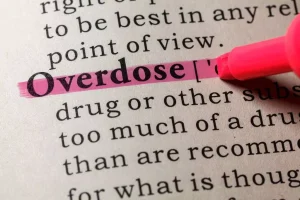
The third type of headache caused by alcohol is a “Delayed Alcohol-Induced Headache” (“DAIH”). These headaches usually occur hours after a patient has stopped drinking, as their blood alcohol level returns to zero. While the cause of DAIH is unknown, researchers believe they are related to a drop in a neurotransmitter called serotonin, which regulates the body’s central pain control. When serotonin levels drop, pain signals are dysregulated, and people are more likely to experience painful conditions like headaches. Some people find that when they drink alcohol, they experience sneezing and nasal congestion. Gustatory rhinitis is the medical term for a runny nose or sneezing you may get after you eat hot or spicy foods.
- But, if your nose is all stuffed up or runny after just a few sips of wine, this process probably isn’t proceeding as smoothly for you as it does for other people.
- One older study in people with asthma found that over 40 percent of participants said that drinking alcohol prompted allergy or allergy-like symptoms.
- Some people with asthma find that their breathing is affected when they drink alcohol.
- If left untreated, an allergic reaction can quickly become worse.
When to speak with a doctor
- The histamine causes the blood cells in the nasal region to dilate, resulting in mucus, nasal congestion, sneezing, and a runny nose.
- Theories suggest that for certain people drinking has a different and stronger impact that can lead to alcohol use disorder.
- Hodgkin’s lymphoma is a type of cancer that can affect your lymphatic system.
- When ADH levels drop, as they often do with age, alcohol lingers in your bloodstream longer.
If you’ve realised that your body is suddenly intolerant to alcohol, don’t worry—there are steps you can take to manage it and still enjoy your social life. These are just a few examples of how changes in your health can turn alcohol into an unexpected problem. If you think a new health sneezing after drinking alcohol issue might be to blame, it’s crucial to get a proper diagnosis from a healthcare professional. The first is that alcohol contains compounds that act as allergens. The most common of these compounds are sulfites, which are typically highest in beer, brown liquor, and cider.
Alcohol Nasal Congestion FAQ
- Beer is carbonated, so it can lead to excess gas in the stomach and bloating.
- If you’ve realised that your body is suddenly intolerant to alcohol, don’t worry—there are steps you can take to manage it and still enjoy your social life.
- Other than that, choosing drinks less likely to cause bloating is another option.
- Two teaspoons of wine or a mouthful of beer may be enough.
You can rinse before you use nasal sprays to help the medicine work more effectively. Saline nasal sprays are easy to use, but nasal irrigation is more effective. If you’re looking for a way to prevent sneezing when you drink, try making your cocktails with fresh fruit juices instead of using pre-made mixes.
What are the symptoms of a beer allergy?
In some cases, a healthcare provider may identify an allergy to a specific ingredient or compound in wine, like grapes. Beer also contains histamines which could cause a reaction in some people, including sneezing and stuffy nose after drinking. The second reason why alcohol can cause sneezing and congestion is that wine, beer, and spirits contain histamine, a compound that elicits an allergic response. Of all alcoholic beverages, red wines usually have the highest histamine content.
Impact on your health
More likely, you’re allergic to or sensitive to a particular ingredient in that beer. The histamine causes the blood cells in the nasal region to dilate, resulting in mucus, nasal congestion, sneezing, https://ecosoberhouse.com/ and a runny nose. However, the severity of these symptoms may vary from person to person. If you have strange symptoms soon after drinking, your body may not be processing alcohol properly.
IgE is an antibody that suggests that a person may have allergies. Your symptoms can also be due to an interaction between beer or alcohol and any medication you’re taking. Be sure to tell your doctor if you’re taking any medications or supplements.


Sulfur dioxide is another closely related chemical that can trigger reactions in some people. You should never ignore the symptoms of an allergic reaction. If left untreated, an allergic reaction can quickly become worse. Combining alcohol with certain medications also can cause reactions. The most obvious might be carbonated drinks, such as beer or soda. Champagne, sparkling wine, and hard seltzer also contain carbonation that can lead to bloating.


Recent Comments